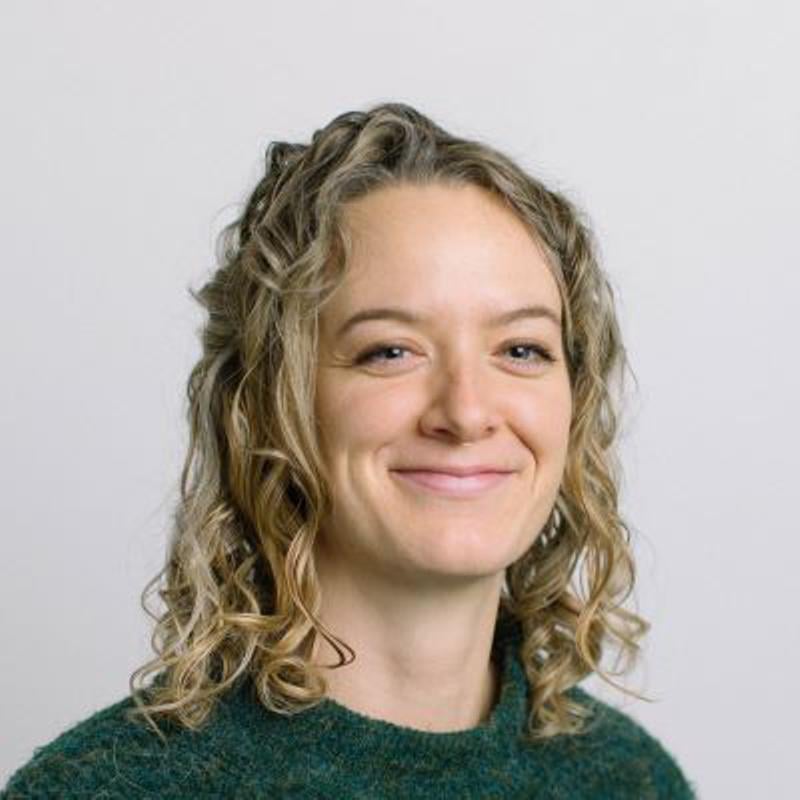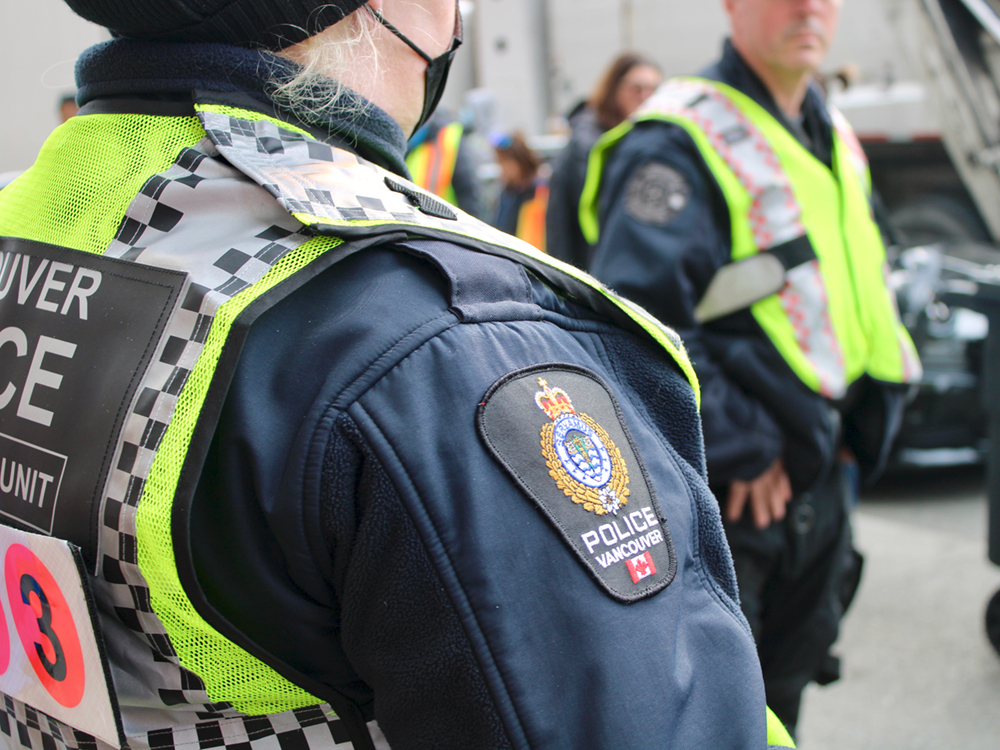One year after Mayor Ken Sim and the ABC party swept into power on a promise to hire 100 cops and 100 mental health nurses to address fears about crime and safety in Vancouver, only part of that campaign pledge has been fulfilled.
At a police board meeting in September, Chief Adam Palmer announced that 100 new police officers have now joined the Vancouver Police Department.
But just 9.5 full-time equivalent positions have been filled to support the mental health side of the promise.
In fact, Vancouver Coastal Health says it’s no longer aiming to hire 100 nurses. Instead, it’s aiming for 58 staff and specialists, including social workers, community liaison workers and peers, as well as other disciplines alongside nurses to deliver care.
Earlier this year, Vancouver city council voted to give $2.8 million to Vancouver Coastal Health in order to fund more mental health workers. It was an unusual move: health authorities normally receive money for health services from the province, not from municipalities.
Council also voted to approve an extra $3.4 million for the police budget, bringing the increase for the 2023 police budget to $28.7 million, and the total police budget to $373.4 million. The city’s total operating budget is $1.9 billion.
At the police board meeting on Sept. 21, Palmer said the VPD has had no trouble recruiting new police officers and has now hired 70 new recruits who are first-time officers, as well as at least 24 experienced officers from other police services.
Sim and ABC’s support for more police officers led to a historic move by the Vancouver Police Union to officially endorse the party in the run-up to the 2022 civic election.
In contrast, it’s been a struggle for VCH to recruit nurses specializing in mental health.
BC Nurses’ Union president Adriane Gear said she remembers wondering where Sim was planning on finding 100 nurses when he first made the campaign pledge. In B.C. there are around 5,000 full-time nursing vacancies, she said. Specialized nurses are an even more “finite resource,” she added.
Still, she applauded the mayor’s “outside the box” thinking during the intersecting crises of nursing shortages, mental health and toxic drugs and appreciates how the initiative raises awareness about a nurse’s role to provide trauma-informed approaches and culturally appropriate care.
The Tyee contacted the mayor’s office for comment but did not hear back by press time.
Tyson Singh-Kelsall, a PhD student who worked as a registered social worker for VCH until this summer when he quit, is deeply critical of the health authority’s move to integrate police into health care. He said this will further alienate people who need help from accessing supports when they need them.
“Some people will not survive this,” he said.
Singh-Kelsall noted that five people were killed last year during interactions with the VPD. The police were also involved in a number of cases of violence during wellness checks, he added.
Health care needs to separate itself from the police to build trust with clients — otherwise people will avoid asking for help until it’s a crisis, which makes police involvement all the more dangerous, Singh-Kelsall told The Tyee.
Campaigning to hire “100 mental health nurses” is confusing for the public because that’s not technically a position that exists in health care, Singh-Kelsall said.
In B.C. a nurse can be a registered nurse, a nurse practitioner, a licensed practical nurse or a registered psychiatric nurse. This is further confused by VCH hiring staff and specialists to fill part of the “100 mental health nurses” quota, instead of just nurses, he said.
In an email to The Tyee, VCH said it is prioritizing funding “responsive” urgent mental health services this year and will focus on “proactive” services next year.
VCH said investments are guided by the Urgent Mental Health and Substance Use Service Enhancements Framework, which VCH produced in partnership with the VPD and city staff.
The framework prioritizes supports for “those with the most acute needs,” VCH said in its email, adding the first year of investment will focus on increased capacity of police-partnership services and non-police de-escalation services, as well as strengthening Indigenous approaches in all urgent mental health services.
BCNU’s Gear said she hopes the initiative to hire 100 nurses was led and informed by consultations with frontline health-care workers and nurses specializing in mental health who worked with marginalized and unhoused folks.
“For many folks interactions with the health-care system have been traumatizing,” she said, adding nurses can meet patients where they are at.
To date, 5.5 full-time equivalent positions have been hired to “support enhanced police partnerships” and to expand the Car 87/88 service, and four full-time equivalent positions have been hired to support a new moderate (non-police) de-escalation service, or MODE, VCH told The Tyee.
The Tyee asked VCH how many of these positions were filled by nurses, but the health authority didn’t answer by press time.
Car 87/88 pairs a police officer and clinician who respond to mental health crisis calls together. This partnership provides a health response rather than a criminal justice response even when a patient is at risk of harming themselves or others, according to VCH.
MODE will help connect people experiencing “deteriorating” mental health to support services, sending out teams of nurses, social workers, cultural support workers, peers and community liaison workers instead of police officers, VCH says.
VCH said it is working on hiring 8.5 full-time equivalent positions for Car 87/88 and 28 full-time equivalent positions for MODE.
Singh-Kelsall said involving police officers in a mental health call can unnecessarily escalate a situation because a patient may become further agitated at the sight of the officers or worried they may be detained under the Mental Health Act.
VCH also said it is continuing to work with Indigenous partners to create an Indigenous-led crisis response team but is not at the hiring stage yet.
It’s a good idea to have an Indigenous-led crisis response team, but the entire VCH initiative should also be seeking out and incorporating Indigenous perspectives, Gear said, “regardless of where the City of Vancouver or VCH is at with their hiring process.”
Once the “responsive” services are in place, VCH will focus on “proactive” services, such as program development and additional recruitment, VCH said.
The City of Vancouver approved the municipal funding for the VCH programs in February 2023. The health authority is “on schedule” for hiring staff after funding was freed up this spring, VCH said. ![]()
Read more: Health, Municipal Politics


















Tyee Commenting Guidelines
Comments that violate guidelines risk being deleted, and violations may result in a temporary or permanent user ban. Maintain the spirit of good conversation to stay in the discussion and be patient with moderators. Comments are reviewed regularly but not in real time.
Do:
Do not: